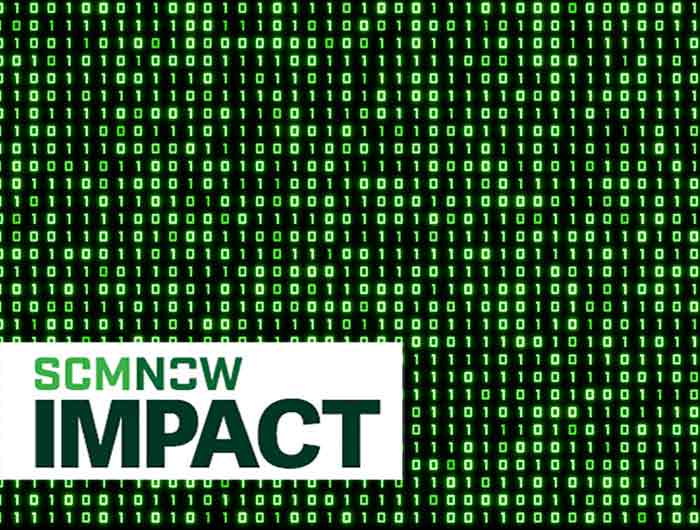Given how rapidly technology is advancing — from artificial intelligence and chatbots to blockchain and digital twins — it’s no surprise that a full seven of ASCM’s Top 10 Trends in Supply Chain are related to technology. And one overarching theme affecting them all is the need to prioritize sustainability as networks digitize.
An interesting example of this was in the news this week: automated package sizing. You’ve likely had the experience of ordering something small online, only for it to come in a massively oversized box stuffed with packing peanuts or inflatable air cushions. To address this unfortunate waste, megaretailer Walmart and packaging specialist Packsize have partnered to create right-sized boxes for consumer shipments. “By right-sizing the boxes, the technology minimizes the costs and environmental impact of unneeded corrugated box material. … The configuration also allows retailers to fit up to one-third more boxes on carrier trailers, which ultimately gets more orders to customers each day.”
The process works via the Ultra5 machine, which the two companies collaborated to build. Prathibha Rajashekhar, senior vice president of innovation and automation for Walmart, explains that it “tailors each box to the items [being shipped], eliminating unnecessary waste and improving the unboxing experience once the package arrives.”
Another important supply chain tech innovation is the use of sustainable labeling technology, which reduces waste by improving the label itself. A “well-made and clear” label conveys useful information for an extended period compared to poor-quality labels, which fade away or peel, according to Quality Digest. This type of sustainable labeling is also more cost-effective: “The technology pays for itself in the long term by producing packaging that is much longer lasting and more reusable,” the article notes.
Further, effective labeling is an excellent opportunity to convey crucial information about an item’s recyclability. People often partake in “wishful recycling,” which contaminates the entire batch and condemns proper recyclables to the landfill. Starting with a clear label helps deter consumers from throwing trash into the mix by empowering them with clear, useful information.
Get ahead of the trends
Wondering how you can get all the clear, useful information you need to make the best possible decisions for our environment and your supply chain? I’m pleased to announce that ASCM is launching a credential to help you do just that. The ASCM Supply Chain Technology Certificate is coming soon, and this self-paced, online certificate will explain how to implement the latest technologies at your organization in order to reduce costs, boost performance and achieve a more sustainable supply chain. You’ll learn to proven strategies for streamlining operational performance, bolstering reliability and minimizing security threats.
The credential is far-reaching and specifically designed to give you a professional edge. Upon completion, you’ll receive a digital badge for your email signature and LinkedIn profile to demonstrate your understanding of critical supply chain technologies including blockchain, advanced analytics, the internet of things, cybersecurity, additive manufacturing and lots more. Sign up to receive updates today, and you’ll be notified as soon as the certificate launches. Then, check out our other credentials and certificates to begin advancing your supply chain career right away.



